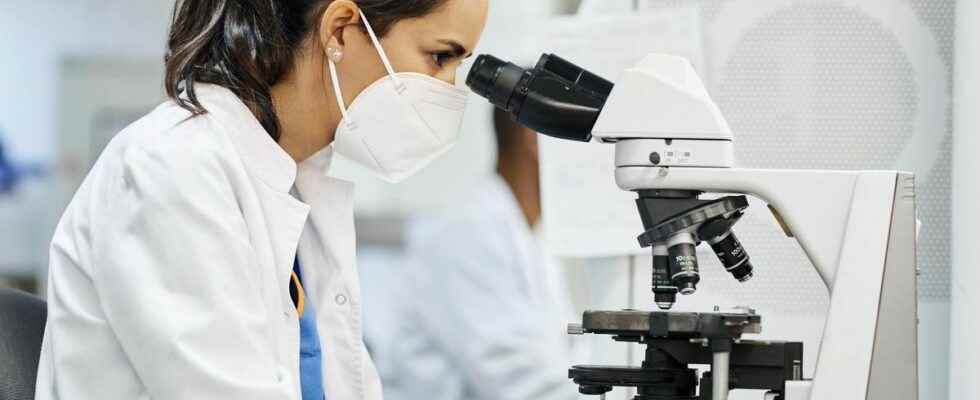Published on
Updated
Reading 3 mins.
More than twenty years after their first marketing, therapeutic antibodies are more promising than ever, also arousing the interest of investors.
At the annual congress of theAmerican Society of Clinical Oncology (ASCO), at the beginning of June, which brings together the world’s cancer specialists, a study has particularly attracted attention: the presentation of a clinical trial on Enhertu, an antibody developed by the Japanese pharmaceutical groups Daiichi Sankyo and Anglo-Swedish AstraZeneca.
This treatment was already authorized in patients suffering from breast cancer with high amounts of a protein called HER2. It has also been shown to be effective in patients with this protein, but in a lower quantity, which therefore increases the number of patients who could benefit from it.
Important progress, according to Professor William Jacot, of the Cancer Institute of Montpellier, in the south of France, who participated in this clinical trial. “We had not seen such an advance in terms of survival, with treatment using chemotherapy, for decades”he said.
“It is an antibody armed with chemotherapy: the antibody sticks to the surface of the cancerous cell whose receptors no longer work. The cell then digests the receptors to recycle them: this is where the chemotherapy is released”explains the oncologist.
The success of therapeutic antibodies
The announcements follow one another and also arouse the enthusiasm of investors: recently, the French biotech ImCheck thus raised nearly 100 million euros for an antibody in development. And the big laboratories are not left out, ready to pay dearly. The French Sanofi had thus bought in 2018 the Belgian biotech Ablynx for nearly 4 billion euros, getting its hands on its nanobodies (mini antibodies).
But how do these antibodies work? It is, in its natural state, an alarm signal, generated by the immune system. Antibodies, which are proteins, recognize substances foreign to the body (called antigens), attach themselves to them and thus signal them to the rest of the immune system.
However, in 1975, two scientists, Gerard Köhler and Cesar Milstein, discovered how to produce them in the laboratory, which earned them the Nobel Prize for Medicine. Since then, dozens of synthetic antibodies have been developed.
Another advantage of the technology: if its production is complex, it is nevertheless less complicated and expensive to implement than new treatments using cell therapy.
In the case of cancer, several modes of action are possible. Therapeutic antibodies will, for example, target the proteins necessary for the production of cancer cells and bind to them to destroy them. Others may act on the regulation of the immune response.
Consult an oncologist online
Destroy the diseased cell
In recent years, chemotherapy-conjugated antibodies, such as Enhertu, have been added to the panoply. This is also the track developed by the French biotech Inatherys, currently in phase 1 of a clinical trial in leukemia, explains Pierre Launay, director of the company.
“Our antibody will bind to the transferrin receptor, a receptor that allows iron to enter the cancerous cell. It is an interesting target because cancer cells need iron. Our strategy is therefore to use a homing missile, which will deliver a poison specifically inside the sick cell to destroy it.“, he depicts.
In addition to cancers, these treatments are being developed for inflammatory diseases. And even against infections, as for the treatment of patients with Covid-19: we can notably cite the Evusheld antibodies from AstraZeneca, used preventively, or, as a curative, Xevudy from the British GSK.
With these many potential indications, the market is buoyant: Dupixent, Sanofi’s flagship drug in immunotherapy, brought in more than 5 billion euros last year to the laboratory. Keytruda, used in oncology, generated more than $17 billion for the American MSD in 2021.
According to estimates by the firm Market data forecast, the global market could reach 249 billion dollars within three years.
